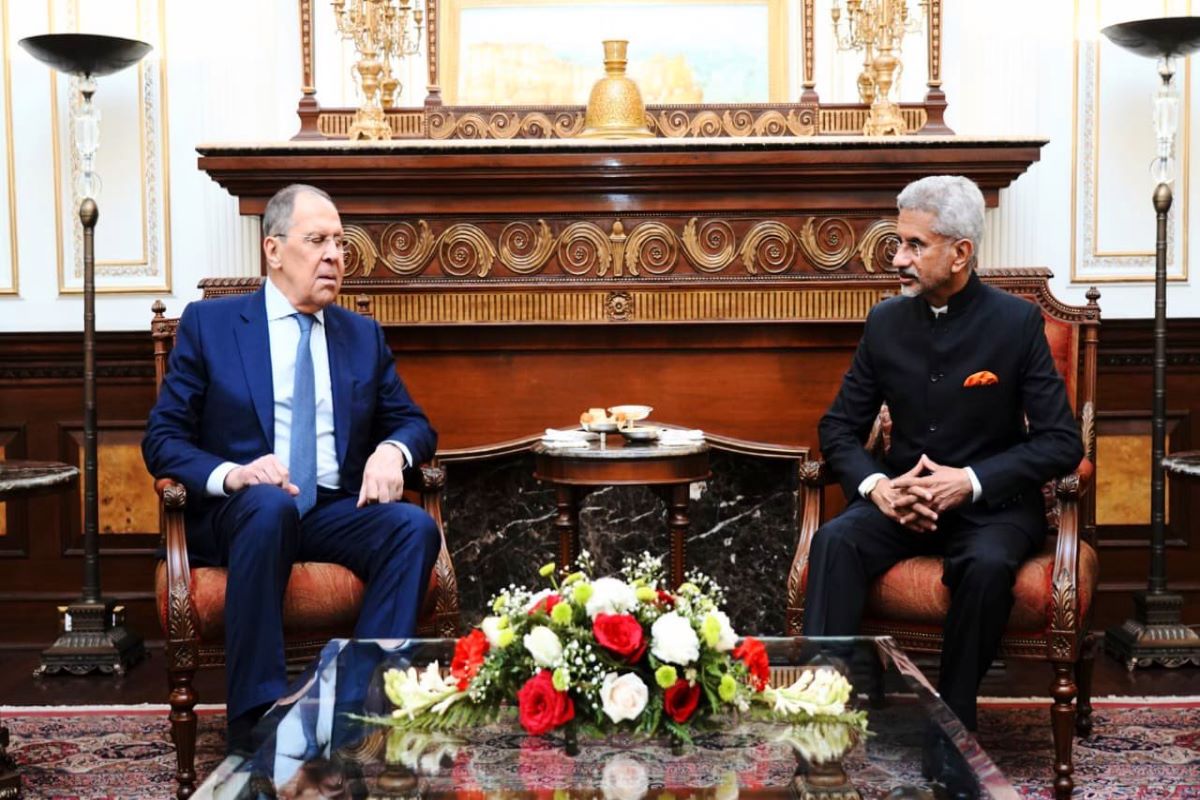Russian foreign minister Sergey Lavrov’s visit to India last week could be seen as a gesture of appreciation by the Kremlin for South Block’s studied neutrality on the Ukraine war. But it wasn’t only about symbolism.
On offer was an increase in Russian oil and gas exports to India at a heavily discounted price, the possibility of India playing the role of a mediator between Russia and Ukraine thereby increasing New Delhi’s diplomatic heft globally, and the resurrection of the old Rupee-Rouble payment arrangement or at least an approximation thereof to enhance bilateral trade.
Advertisement
The Indian response, led by External Affairs Minister S Jaishankar, was suitably circumspect; beware the Russian bearing gifts, in a manner of speaking. Though India gladly took up ~ and stocked up on ~ the offer of cheap oil from Russia, Mr Jaishankar called for an immediate cessation of violence and hostilities in Europe during talks with Mr Lavrov and emphasised that New Delhi was not in favour of military action to resolve disputes.
There are many in India and their allies in the West who have been bringing to bear enormous pressure on New Delhi to take a stronger, more condemnatory line towards the Russian invasion of Ukraine. It is to the Ministry of External Affairs’ credit that despite the telephone call by US Secretary of State Anthony Blinken to Mr Jaishankar on the eve of Mr Lavrov’s visit ostensibly to discuss the humanitarian situation in Ukraine, the more direct pressure sought to be exerted on the Indian policy establishment by American Deputy National Security Adviser (NSA) Daleep Singh (who is in charge of sanctions against Russia) on his visit to Delhi preceding Mr Lavrov’s, and UK Foreign Secretary Liz Truss adding the British voice to America’s shout-out to India, New Delhi held the line.
The Indian stand from the beginning of hostilities between Russia and Ukraine has been to call for a ceasefire and urge a diplomatic solution through negotiations, which is precisely what was iterated by Mr Jaishankar in his media interaction after his bilateral with his Russian counterpart. It is the Indian understanding, however, that the longer the conflict rages in Ukraine, not only does the humanitarian argument for Russia to back off intensify but neutrality too becomes more difficult to articulate robustly.
It is understood that this assessment was also conveyed to Mr Lavrov while assuring him of India’s continuing deep ties with Russia. The fact is that it is because of India’s nuanced position ~ based on a thorough understanding of its strategic interests ~ on the Russia-West stand-off that top leaders and officials have made a beeline for India recently.
Apart from the abovementioned, these have included the Japanese Prime Minister, the foreign ministers of Mexico ~ which co-sponsored a resolution in the United Nations General Assembly on the Ukraine humanitarian situation that India abstained from ~ China, Greece, Oman and Austria, and a senior adviser to the German Chancellor. While all came with their own agendas, the success of Indian foreign policy has been that none left fully satisfied or as enemies
